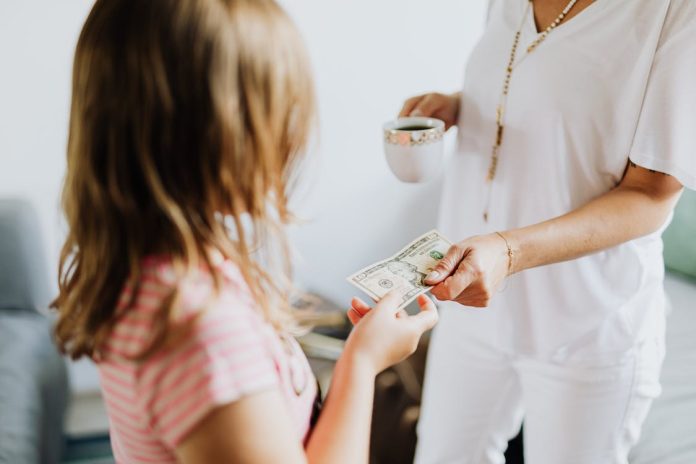Money education tackles learning about money from personal finance in general. Teaching kids about money can help them make better life decisions regarding college, buying a house, or even getting their first job. From the start, money and economy education help children learn about money, how it works, and how to manage it. Preschoolers learning about money and its importance at a young age are better prepared to succeed than kids who don’t know about finances until much later in their childhood.
There are many economic homeschool curriculum for families to learn about the basics of money and the economy early on. It’s a fun way to get your children talking and thinking about their purchases, savings, and spending habits from an early age.
Table of Contents
10 Tips on How to Start Money and Economy Education at Home for Preschoolers
1: Meet the Family Money
The goal of money education is to open up a dialogue. Start by discussing with your preschooler how the family makes money (jobs, business, freelancing, etc.). Then, start discussing the use of money for daily living, talk to them about other costs, and don’t forget about savings. Next, show them how your finances work and help them learn about their family’s finances. It is a great way to get your kids talking about their families and hopefully ignite their curiosity regarding related topics: math, economy, finances, how banks work, etc.
2: Learn about Their Budget
Discussing cash and budget transactions with your preschooler is a great way to start talking about money. Kids can learn the basics of spending and saving. It’s also an excellent opportunity to make some decisions together to decide how they want to spend their money and how they want to earn their money when they grow. Finally, it’s a great way to model good spending and saving practices for your children early.
3: Money Facts
Kids can learn about two central facts about money: first, cash and coins. Show your child how many pennies, nickels, dimes, quarters, or dollars are in a dollar bill. Talk about each coin’s value and the relationship of one dollar to another.
4: Money Proof
Have your preschooler count out their coins and make matching sets. Discuss their value and how each currency can buy a different good or service, such as candy, a toy, or clothes. It is one of the first times children interactively learn about money.
5: Plan a Savings Account
Let your preschooler choose five pennies, nickels, and dimes to put in an envelope in their piggy bank. Explain that when their money gets close to 5 dollars, they can use it to get something they want or continue saving to reach a larger sum that can get them an even better item (product or activity). From here, you can continue teaching your child how to save money using modern technology too.
6: Challenge Their Spending and Saving
It is a great way to see how your child spends and saves money. Have them go around the house asking for imaginary purchases and donations. Challenging your child’s motivations for spending, saving, and sharing habits are fun. It’s also a great lesson in making good choices with their money as they grow up.
7: Money Values
Please talk with your preschooler about the value of things they own and the value of objects you want to buy them. Explain that you need to ensure that their toys, clothes, and books are worth the money you spend on them. The conversation about the value of purchase items can open up a more in-depth talk about free market principles, how the economy works, market competition, product quality, etc.
8: Role Play a Money Exchange
It is a fun way for your preschooler to learn about money exchanges. Use plastic coins and bills to create an imaginary scenario where your child has to make a deal with you over an item they want. Set up the system, so it makes sense for them to purchase the item. Then have them negotiate with you on a price that makes sense for both parties. It is a great way to learn about dealing with money exchanges.
Bottom Line
Learning about money and the economy is fun for your preschooler to learn about finances from an early age. In addition, it opens up an excellent way for you to talk to your child about the family’s budget and the important things they need to know and master as they grow up.



















